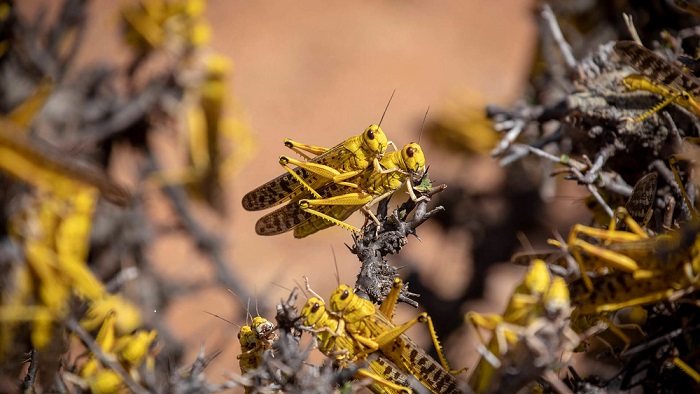IThe Food and Agricultural Organization (FAO) has issued a warning about an impending locust invasion-second of its kind in East Africa since the year began. The gigantic swarm of locusts is expected to descend on East and Horn of Africa countries causing huge destruction of crops.
As predicted by the United Nations agency, the second wave of invasion in six months will cause more destruction as it will find young and supple crops. Unfortunately, this will deal a double blow to food security in a region that is already grappling with widespread economic disruption from the coronavirus pandemic.
According to FAO’s resilience team leader for Eastern Africa Cyril Ferrand, the concern at the moment is that the desert locust will eat the young plants. This is because the young plants’ very soft, green material, biomass leaves, rangeland, is, of course, the favorite food for the desert locusts.
FAO, the body responsible for overseeing response to the locusts, warns that the new generation is up to 20 times in size and 400 times stronger thereby posing a food insecurity threat to the East African region.
Too late to stop
FAO warns that it will be too late to stop the locusts from spreading in less than six months, thereby inviting starvation to millions. Current solutions have not and will not work, the agency warns, as the sizes of the swarms are too big for aerial spraying. Further, current spraying practices don’t kill everything, leaving bugs in the ground.
As it is, Covid-19 poses a challenge to control activities. However, disruptions to supply chains have stalled delivery of pesticide shipments, creating stock-outs and shortages. Should the current situation persist, FAO fears that up to an additional 5m people could become food insecure in East Africa by June of this year








